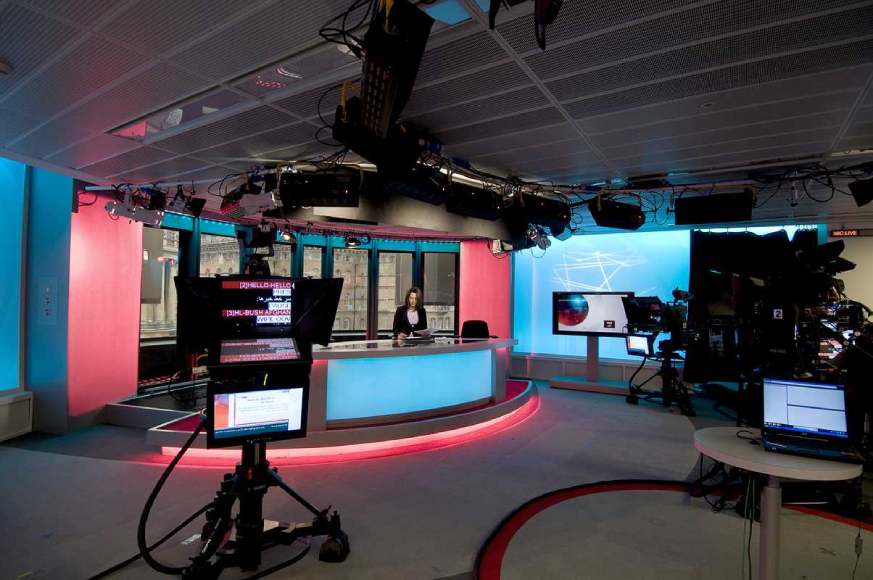By Kayhan Life Staff
The U.S.-based National Union for Democracy in Iran (NUFDI) has lodged a formal complaint with the BBC Persian Service for a reference made to Iranians who have objected to the appointment of the new U.S. Special Representative on Iran, Rob Malley.
NUFDI, which describes itself “as a non-profit, non-partisan organization made up of Iranian-Americans of all backgrounds dedicated to the cause of justice who closely follow events in their home country of Iran,” has objected to BBC Persian’s characterization of those who opposed Mr. Malley’s appointment. NUFD argues that Malley may not take a firm stance against Iran’s human rights record.
BBC Persian, in a Jan. 29 tweet, described Malley as having “played a crucial role as a team member that negotiated” the Iran nuclear deal, and said his appointment “signals a return to diplomacy and talks.”
NUFDI Policy Director Cameron @Khansarinia has filed an official complaint with the @bbcpersian for its false reporting on a letter he signed along with other activists, former political prisoners, and US hostages in #Iran. https://t.co/penYtgIcTq pic.twitter.com/dtONvgUF2e
— National Union for Democracy in Iran (@NUFDIran) February 2, 2021
The tweet also included a four-minute BBC Persian broadcast (from Jan. 20) that said that for almost a week, Malley’s appointment had been “a test of wills in Washington. On one side were most of the U.S. Republicans, right-wing Israelis, Saudis, and Iranians close to them. On the other side were most of the Democrats, EU, and activists opposing sanctions — each side with its lists and lobbying efforts.”
“By appointing Robert Malley, Biden’s administration has signaled that resolving differences between the U.S. and Iran is one of its priorities,” the BBC broadcast added. “Malley’s appointment shows that the U.S. is committed to rejoining the JCPOA.”
That BBC tweet drew an immediate response from NUFDI’s policy director Cameron Khansarinia. He tweeted on Feb. 2 that he had “lodged an official complaint with the @bbcpersian for its false reporting on a letter he signed along with other activists, former political prisoners, and [former] U.S. hostages in #Iran.”
PLEASE SHARE
Former US hostages, Iranian political prisoners, and Iranian-American journalists and activists oppose the reported consideration of @Rob_Malley as @StateDept‘s #Iran envoy.
This selection would contradict @JoeBiden & @ABlinken‘s pledge to prioritize human rights. pic.twitter.com/GZ2gfpD1Lb
— National Union for Democracy in Iran (@NUFDIran) January 22, 2021
In the complaint letter — sent the day before and posted on Twitter — Khansarinia began by introducing himself as “a signatory of the recent letter to American Secretary of State Antony Blinken opposing the selection of Mr. Robert Malley as Special Envoy on Iran with a formal complaint regarding the BBC Persian Service’s coverage of our letter.”
Khansarinia went on to object to the BBC report’s characterization of the letter’s signatories as “‘mostly U.S. Republicans, Israeli and Saudi right-wingers, and Iranians close to them.’”
“This false description is an attempt to slander signatories of this letter,” said Khansarinia in his complaint to the BBC. “I demand a formal investigation into the research, editing, and production of this false reporting and a formal admission of fault from the BBC Persian Service.”
At the heart of the dispute is NUFDI’s opposition to the appointment of Malley, which it expressed in a Jan. 21 letter signed by a 12 people — three of whom were former hostages at the U.S. Embassy in Tehran in 1979 — and sent to U.S. Secretary of State Antony Blinken.
“Former US hostages, Iranian political prisoners, and Iranian-American journalists and activists oppose the reported consideration of Rob Malley as State Department’s Iran envoy,” the letter, which was posted in a tweet the next day, read. “This selection would contradict Joe Biden and Antony Blinken’s pledge to prioritize human rights.”
“Mr. Malley’s appointment to this post would send just the opposite message to the regime in Iran and the pro-democracy movement,” it went on..
“During his tenure in the [Barack] Obama administration, Mr. Malley did not engage Iranian human rights activities nor did he seem at all interested in pursuing a dialogue or consultation,” the letter noted. “Instead, he focused on consulting former officials of the Islamic Republic.”
“Malley’s appointment would send a chilling signal to the dictatorship in Iran that the United States is solely focused on re-entering the Iran nuclear deal and ignoring its regional terror and domestic crimes against humanity,” the letter added.
The signatories to the letter included Nazenin Ansari (Journalist), Ahmad Batebi (democracy activist, journalist), Roya Hakakian (writer), Cameron Khansarinia (NUFDI Policy Director), Karmel Melamed (Journalist, attorney), Mariam Memarsadeghi (democracy advocate), Navid Mohhebi (democracy activist), Barry Rosen (U.S. press attaché to Ira, taken hostage from 1979 to 81), Kaveh Shahrooz (senior fellow, Macdonald Laurier Institute), Arash Sobhani (artist, activist), Xiyue Wang (Former U.S. hostage held in Iran) and Nizar Zakka (former hostage in Iran).
NUFDI Policy Director Cameron @Khansarinia has filed an official complaint with the @bbcpersian for its false reporting on a letter he signed along with other activists, former political prisoners, and US hostages in #Iran. https://t.co/penYtgIcTq pic.twitter.com/dtONvgUF2e
— National Union for Democracy in Iran (@NUFDIran) February 2, 2021
Earlier, on Jan. 20, NUFDI wrote a letter to U.S. President Joe Biden demanding that he support the Iranian people’s democratic aspirations.
“The Iranian people demand an end to this regime because they recognize it is irreformable and that the crimes against humanity it commits daily are not reactions to international policies, but manifestations of its evil ideology,” the letter to President Biden said. “Mr. President, in the campaign, you insisted that your foreign policy would be based on support for human rights and democracy. This principled vision can be put into practice with Iran by supporting the Iranian people’s ongoing movement for a secular democracy.”


